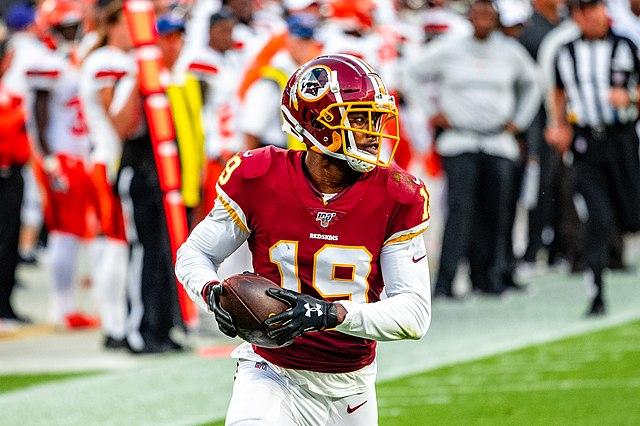On Thursday April 7, the Native American Student Association (NASA) hosted a screening of the documentary “More Than a Word,” a 2017 film about the former title of the Washington football team, “R*dskins,” the history of the slur and other caricatured and offensive representations of Native Americans. The film was created and directed by brothers Kenn and John Little, who are members of the Standing Rock Sioux Tribe.
“More Than a Word” covered the origins of the Washington team’s name, as part of a larger discussion of depictions of Indigenous peoples and practices in mainstream media and the impact it has on the communities that are being portrayed.
The film included a broad range of perspectives, including plaintiffs Suzan Shown Harjo and Amanda Blackhorse. Shown Harjo and Blackhorse discussed their respective cases brought to the United States Patent and Trademark Office, the Harjo Case and the Blackhorse Case, both of which were attempts to block the Washington football team from obtaining federal trademark protection for the name and mascot. Both were successful in their initial petitions, but decisions were subsequently overturned in appeal cases.
The documentary also featured interviews from fans of the team, including both staunch supporters of the team’s name and mascot, many of whom insisted it was a “sign of respect” or done to “honor Native Americans,” as well as fans who were actively petitioning for the name to be changed.
Many fans of the team pointed to certain Native American “endorsements” of the team’s name and highlighted a misrepresentative poll of a “random national sample” of 504 self-identified Native Americans via a phone call, conducted by the Washington Post, showing that “9 in 10 Native Americans aren’t offended by [the] R*dskins name”.
Many of the film’s interviewees, including tribal attorney and co-founder of Not Your Mascots, Tara Houska Zhaabowekwe, a member of the Couchiching First Nation, responded to these claims by pointing out that although nowhere near a monolithic community, Native American organizations almost unilaterally condemn the name and other such representations of Indigenous people, culture and traditions. Zhaabowekwe also said that the protests surrounding the Washington football team’s name had been going on for decades, since the start of the Civil Rights Movement.
“More Than a Name” explored other uses of racist caricatures of Native Americans, especially in sports and as team mascots, and touched on the long history of Native American activism and advocacy. The film also highlighted the serious and far-reaching repercussions that misrepresentation and continued cultural appropriation have, especially on the self-image of Indigenous youth. As the name of the film suggests, despite proclamations that it’s “just a word/name/picture/costume,” these depictions, especially as a piece of systematic oppression, cause serious and lasting harm to Indigenous communities and individuals, especially when these portrayals are the only narrative that non-Native people are presented with.
Although at the time of the film’s release the name of the team had not been changed, it ended on an uplifting note with most of the interviewees anticipating a name change and the eventual success of the movements towards the abolition of institutionalized discrimination and oppression of Native peoples.
In wake of the protests surrounding the 2020 murder of George Floyd, the Washington football team changed its name and mascot, and as of this February they are officially the Washington Commanders. Yet the continued use of Native American mascots and iconography remains an issue.
In their presentation of the screening, NASA president, Emma Slibeck ’24 reiterated the importance of not using derogatory language and depictions, despite their prevalence.
“I’m not using the word, and [non-Native people] shouldn’t be either. It’s a slur…The use of these terms and …“mascots” is not just at this [national] level, it’s happening locally too.” Slibeck said.
She went on to explain that although they’ve since dropped the “Red” and are now represented by a pirate, up until 1998 Wellesley High School’s mascot was officially the “Red Raiders,” including an offensive depiction of a Native American as the logo.
NASA hosted the screening of “More Than a Word” in conjunction with raising awareness about Bill H. 581 and S. 2493, which “prohibit[s] the use of Native American mascots by public schools in Massachusetts public schools.” The bill would impact the 25-30 Massachusetts public schools that currently have Native American mascots and would be part of a wave of similar laws in states across the nation.
This semester NASA has also hosted a screening of the comedy drama series “Reservation Dogs,” and co-sponsored a winter bouquet workshop with the Slater International Center and The Paulson Initiative.






